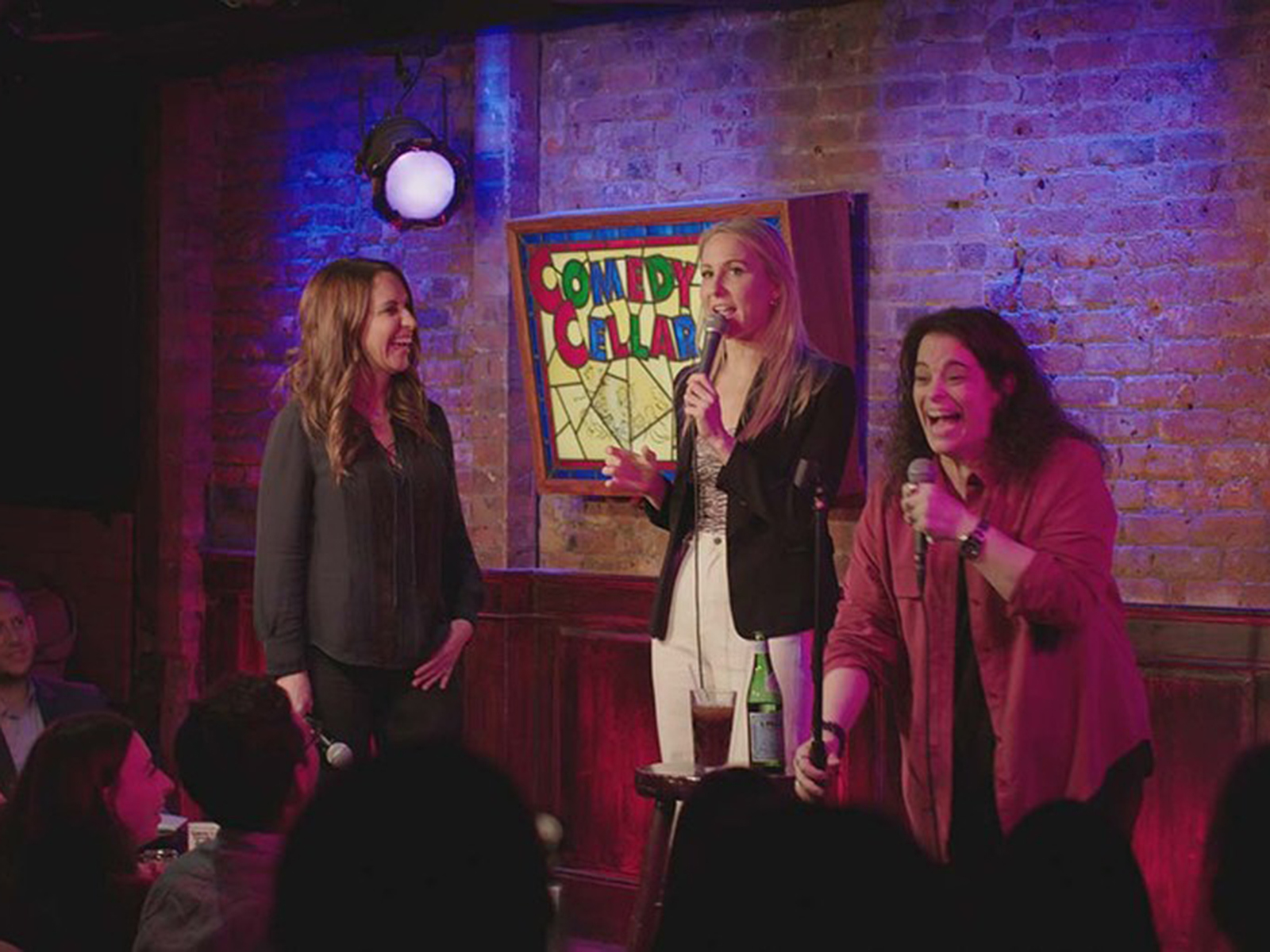
- Film
Docs: Hysterical (2021)
Fully ceding the microphone to its loquacious subjects, both onstage and offstage, Hysterical shines a spotlight on female comedians in a manner that illuminates both the occupational similarities they share with their male counterparts as well as the many unique challenges they face in carving out a career in stand-up comedy. Unflaggingly earnest and positive-minded, and undergirded by a deceptively simple structure, Hysterical nevertheless achieves a lot simply by giving expanded voice to a wide range of highly articulate creative types whose observations carry punchy, trenchant emotional truth. Following its recent world premiere at the South by Southwest Film Festival, the nonfiction title is now available to audiences worldwide via FX and Hulu.
Directed by Andrea Blaugrund Nevins, this documentary tracks the lives of a broad cross-section of performers, including Judy Gold, Carmen Lynch, Iliza Schlesinger, Fortune Feimster, Sherri Shepherd, Nikki Glaser, Marina Franklin, Bonnie McFarlane, Margaret Cho, Rachel Feinstein, Lisa Lampanelli and Kathy Griffin, among others. Blending together interviews, onstage sequences, and other archival material, Nevins uses text interstitials to divvy up and present thematically grouped explorations of various societal ailments and topics.
Naturally, there are plenty of amusing quips and anecdotes, but the subjects seem to all share a keen reflectiveness and sense of self-awareness. Schlesinger ruminates on the melodic, jazz-like quality of comedic riffing, and shares a box of hotel keycards that backs up the film’s examination of the sacrifice involved in a life on the road, and the sense of rootlessness which can come with it. Franklin, meanwhile, might exhibit the greatest range, talking in one very funny bit about wanting to respect the use of gender pronouns but struggling with how it makes her sound like a runaway slave, and later incorporating her just-discovered real-life breast cancer diagnosis into a searing set.
Nevins has, across her body of work, shown a consistent interest in issues of gender as well as their intersection with societal power structures and traditional expectations. Her last movie, Tiny Shoulders: Rethinking Barbie, assayed the cultural impact of the eponymous, enormously popular children’s fashion doll. The Other F Word, meanwhile, examined aging male punk rock musicians and other counterculture figures, as they transitioned into fatherhood while also attempting to maintain a connection with their anti-authority roots. Hysterical continues this trend, showing the personal toll or tradeoff of trailblazing, or bucking other social norms.
Sadly, if unsurprisingly, many stories are shared of body-shaming, harassment, and sexism. Cho recounts, in both old stand-up performance highlights and accompanying new interview footage, being pressured into losing 30 pounds in two weeks while working on her 1994-95 sitcom All-American Girl. Another portion of the movie chronicles Kelly Bachman’s gone-viral confrontation of Harvey Weinstein during his appearance at a 2019 artists’ showcase in New York City while waiting to stand trial on rape and sexual assault charges.
But Hysterical is unafraid to also delve into women’s treatment of one another. And it is here, when leaning most heartily into this behavior, that the film is at its best, disabusing any unenlightened viewers of the notion that there is only one “type” of female comedian. Glaser recalls being bullied to the point of tears by a performer she idolized. And many of the women speak to the unhealthy amplification of artificial rivalries (in a line of work that is by its nature already competitive, and very much a grind-it-out existence) by comedy clubs which have for too long treated female comedians as a gimmick and refused to grant them back-to-back stage time.
Notably, things seem to be changing. The professional backlash Griffin faced when she had the remainder of her stand-up tour canceled and lost other work in the aftermath of a 2017 photoshoot in which she posed with a decapitated head of Donald Trump sparked a wave of support among most especially female colleagues, who decried the double standard of male comedians being long celebrated for shock or expressions of vented anger. And the #MeToo era, as embodied by some of the work of Bachman and other up-and-coming comedians, has seemingly sparked a similar recognition amongst older colleagues that outmoded ways of thinking and acting by gatekeepers and power brokers need not be tolerated in pursed-lip silence any longer. Stealing glances at the past, present and future, Hysterical provides an engaging, thought-provoking snapshot of yet another industry in a state of transformation.